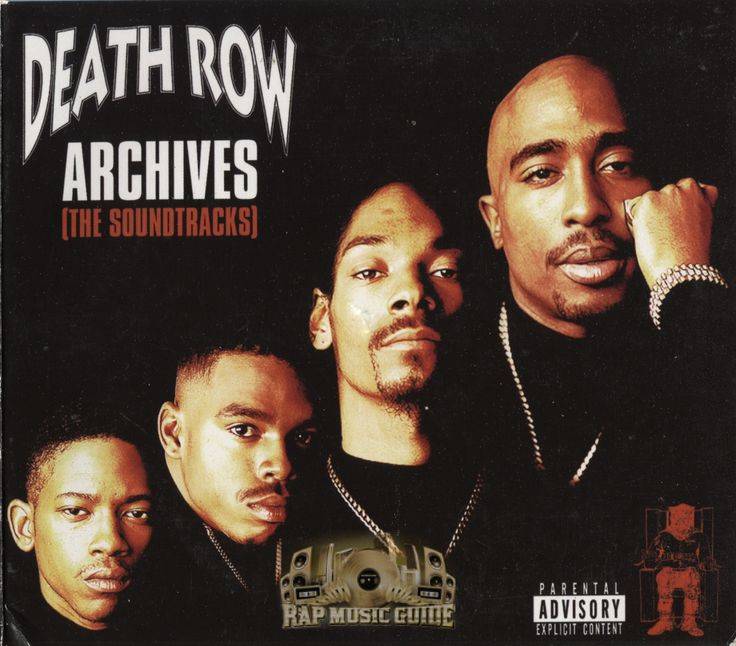In the annals of music history, few labels have burned as brightly-or as dangerously-as Death Row Records. What began as a bold vision to dominate the hip-hop world morphed into a cultural juggernaut, blending raw talent with an undercurrent of violence and intrigue. At its peak, Death Row wasn’t just a record company; it was a movement, a force that promised to eclipse giants like Sony or Warner Brothers. Its mastermind, Suge Knight, dreamed of global conquest, and for a fleeting moment, it seemed he might pull it off.
The early 1990s saw an unprecedented convergence of talent under Death Row’s banner. Icons like Dr. Dre, Snoop Dogg, and Tupac Shakur came together, creating music that streaked across the industry like a comet. Their sound was unapologetic-steeped in sex, drugs, and the gritty realities of street life. Gang culture, once confined to the margins, went mainstream, and everything the label touched seemed to turn to gold. In its first year alone, Death Row raked in $150 million, a staggering haul that fueled its meteoric rise. Cars, cash, and excess flowed freely; if you wanted something, you got it. The label’s success was intoxicating, almost surreal-like a dream too wild to be true.
But with great wealth came greater peril. The more money Death Row made, the more dangerous it became. What started as a musical venture spiraled into something far darker. “This is more than just music,†one insider recalled. “This is dangerous.†The label’s ties to the Bloods, a notorious Los Angeles gang, deepened, and its reputation grew fearsome. Suge Knight, the hulking, charismatic CEO, was the beating heart of it all. To understand Death Row, you had to understand him-a man both revered and reviled, a figure who inspired loyalty in some and terror in others.
Knight wasn’t just a businessman; he was a presence. Standing over six feet tall and weighing more than 260 pounds, his physical stature matched his outsized influence. Snoop Dogg, Tupac, and Dr. Dre may have crafted the hits, but Suge was the enforcer who put Death Row on the map. “How does it feel to be so feared?†he was once asked. His response was telling: “I don’t look at it as fear. I look at it as respect.†To many, though, the line between the two was razor-thin.
Knight’s journey to the top was anything but conventional. Born in Compton, California, he grew up in a working-class neighborhood where neatly trimmed lawns and polished cars once signaled stability. But by the 1980s, crack cocaine had ravaged the community, leaving poverty and violence in its wake. Though never a gang member himself, Knight was shaped by the streets. His uncles and father taught him to fight, to survive in a world that offered little mercy. Sports became his escape-football, in particular. A standout defensive lineman, he played college ball at the University of Nevada, Las Vegas, earning respect for his aggression and leadership. “I loved the contact,†he once said. “I enjoyed hitting.â€
A promising career with the San Francisco 49ers beckoned, but it crumbled after a 1987 incident in Las Vegas. During a dispute, Knight shot a friend, Ricky Crockett, in a non-fatal altercation. Though Crockett refused to cooperate with police, the episode landed Knight on probation and cost him his NFL shot. Undeterred, he turned to music, leveraging his street smarts and imposing demeanor to carve a new path.
Knight’s entry into the industry was as a bodyguard for stars like Bobby Brown, but he quickly saw bigger opportunities. He began managing artists, ensuring they got fair deals in an industry notorious for exploitation. His breakthrough came with Mario “Chocolate†Johnson, a songwriter cheated out of credit for Vanilla Ice’s smash hit “Ice Ice Baby.†Knight intervened, allegedly confronting the rapper in a now-legendary showdown. Though Vanilla Ice denies being dangled over a balcony, the story cemented Knight’s reputation as a protector of talent-and a man not to be crossed.
That reputation paved the way for Death Row’s founding in 1991. Knight teamed up with Dr. Dre, who was desperate to escape the clutches of Ruthless Records and its co-founder, Eazy-E. Dre’s production genius had fueled N.W.A.’s rise, but he felt underpaid and undervalued. Knight’s solution was ruthless: he and his crew allegedly stormed Ruthless’s offices with baseball bats, demanding Dre’s release. When that didn’t work, they upped the ante, reportedly threatening Eazy-E with his mother’s address. Under duress, Eazy signed the papers, freeing Dre and setting Death Row in motion.
Backed by $1.5 million from Michael “Harry-O†Harris, a jailed drug kingpin, Death Row exploded onto the scene. Its launch party at Jason’s, a ritzy Beverly Hills spot, drew industry heavyweights and hood legends alike-a surreal collision of worlds. Dre’s debut album, The Chronic, dropped in 1992, rewriting the rules of hip-hop with its G-funk sound. Snoop Dogg’s Doggystyle followed, cementing the label’s dominance. Then came Tupac, whose raw charisma and prolific output turned Death Row into a powerhouse. The label wasn’t just making music; it was shaping culture.
Yet the success came at a cost. Violence shadowed every triumph. In 1996, Tupac was gunned down in Las Vegas, a murder that remains unsolved, though a recent witness has reignited speculation. Knight himself faced legal woes, from assault charges to a 2015 hit-and-run that left one man dead and landed him in prison. Death Row’s empire crumbled as quickly as it rose, undone by infighting, legal battles, and its own volatility.
Could Death Row have outshone Motown or Sony? Perhaps. Its legacy-equal parts brilliance and chaos-suggests it might have. Suge Knight once envisioned a label that empowered artists from the streets, giving them a voice and a fortune. For a time, he succeeded. But the same ferocity that built Death Row also tore it apart. Today, it stands as a cautionary tale: a comet that blazed across the sky, only to crash in a blaze of glory.




No comments yet
Be the first to share your thoughts!